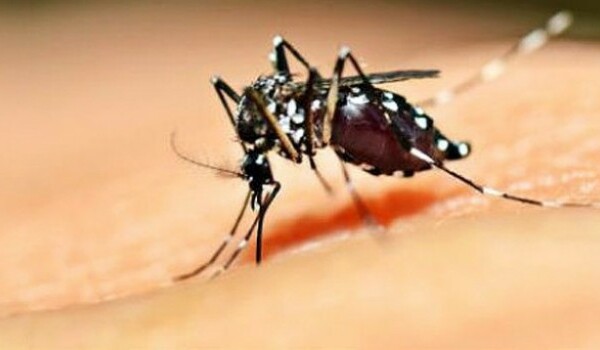Yogyakarta, Beritasatu.com – Results of a randomized controlled trial published in the New England Journal of Health show that there is a reduction in cases dengue fever 77% area Yogyakarta, after the release of Wolbachia bacteria. World Mosquito Program Director Scott O’Neill said the results had been long awaited.
With these results, it shows that the Wolbachia method is a safe, sustainable breakthrough, and can drastically reduce cases of dengue hemorrhagic fever (DHF).
“We are confident in the positive impact this method will have globally when administered to communities at risk for this mosquito-borne disease,” Scott said in a press release. Beritasatu.com, Thursday (10/6/2021).
WMP’s Director of Impact Assessment, Katie Anders, shared a similar opinion. According to him, there are very few randomized intervention trials on DHF mosquitoes.
The trial results from Yogyakarta show convincingly that Wolbachia work to reduce the incidence of dengue and hospitalized because of dengue.
“This is in line with what has been witnessed in a number of previous nonrandomized studies in Indonesia and the northern Australian region, and with epidemiological model predictions of a substantial reduction in the dengue disease burden following the spread of Wolbachia,” he said.
As is known, the potential of Wolbachia to be spread throughout communities around the world has been recognized by the World Health Organization (WHO). This was indicated by the statement from the vector control advisory group that Wolbachia demonstrated the public health value of DHF in the report of the 14th meeting in December 2020.
The pilot application of Wolbachia to eradicate dengue (AWED) was carried out by the World Mosquito Program from Monash University in partnership with Gadjah Mada University (UGM) and the Tahija Foundation.
The experiment was aimed at testing whether the introduction of Wolbachia bacteria into the local Aedes aegypti mosquito population would reduce the incidence of dengue fever. This has also been virologically among people aged 3 to 45 years living in Yogyakarta.
DHF cases requiring hospitalization were reduced by 86% in the Wolbachia trial areas. The success rate of Wolbachia was assessed as being equally effective for all four dengue virus serotypes.
According to the 2019 Global Burden of Disease study, dengue has a fast transmission rate with more than 50 million cases occurring globally every year. More than three years after the completion of the mosquito shedding process in Yogyakarta, Wolbachia remains at high levels in the local mosquito population.
Since the trial, the method Wolbachia has been implemented throughout the Yogyakarta City area and releases have been made to a number of neighbours, covering a population of 2.5 million people.
Research has also shown that the Wolbachia method is effective in preventing the transmission of Zika, chikungunya, yellow fever, as well as other vector-borne diseases. Dengue fever itself is an endemic case in Indonesia with the latest estimates showing nearly 8 million cases occur per year.
In the five years prior to the AWED trial, more than 4,500 patients who had been hospitalized for DHF had been reported to the Yogyakarta City Health Office. However, this does not yet reflect the true burden of dengue cases on the health system and society.
Another study estimated that there were an average of 14,000 cases of DHF including 2,000 hospitalizations in Yogyakarta each year before Wolbachia.
The co-principal investigator from UGM in the study, Adi Utarini said that this achievement was a huge success for the people of Yogyakarta and Indonesia, who recorded more than 7 million cases of DHF every year.
“This breakthrough can expand our work to all areas of the city of Yogyakarta and to neighboring urban areas. In fact, this can be the basis for realizing dengue fever-free areas in other cities in Indonesia,” he said.
Co-principal investigator from Monash University, Cameron Simmons said, the results of this trial demonstrate the significant impact that the Wolbachia method can have in reducing DHF in urban populations.
“Wolbachia can be a very interesting breakthrough as well as prove that this method is classified as safe, reliable and effective for controlling dengue hemorrhagic fever is what the global community needs,” said Cameron.
Source: BeritaSatu.com
– .


